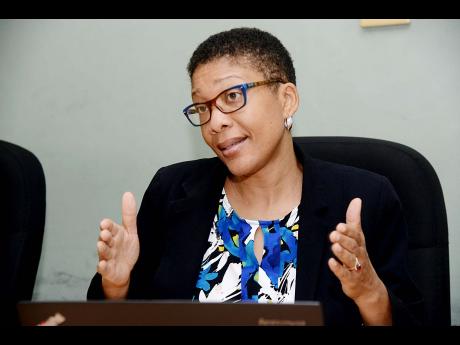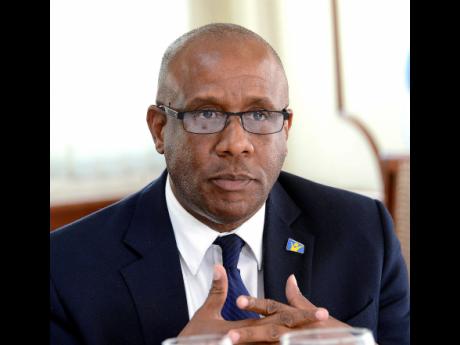Earth Today| Climate realities fuelling rethink of fashion choices
WITH THE unrelenting heat of summer bringing into sharp focus the reality of a changing climate, taking stock of one's clothing choices has become more about looking fashionable or adhering to conventional codes of dress, whether at work or in church.
Recently, Prime Minister Andrew Holness suspended the practice by ministries, departments and agencies of government to prohibit persons wearing sleeve-less attire from entering public buildings.
He also ordered a full review of the practice, with the goal to formulate a government dress code policy "that is aligned with modern considerations as well as the climatic realities of Jamaica".
The move is one that has found favour with a variety of stakeholders.
"Climate change does, in addition to economic and development considerations, have lifestyle and everyday considerations. Clothing and dress are among some of the other things we need to also give consideration to when it comes to climate change," noted Professor Michael Taylor, physicist and co-director for the Climate Studies Group Mona.
"I am heartened by some of the attention being paid to climate by a number of persons and in a number of different ways because it means we are beginning to think beyond how people traditional think about how climate change, how it impacts their daily lives as well as the country and how we need to respond to it," he added.
The warming of the planet is among the key indicators of a changing climate, the implica-tions of which are especially evident in the summer months. It is a time when many are tempted to strip down to the bare essentials to cope with the heat, which can have health implications.
Summer heat threatens the elderly
The World Health Organisation (WHO) reveals that between 2030 and 2050, climate change is expected to cause approximately 250,000 additional deaths per year, from malnutrition, malaria, diarrhoea, and heat stress.
On heat stress, in particular, WHO said: "Extreme high air temperatures contribute directly to deaths from cardiovascular and respiratory disease, particularly among elderly people. In the heat wave of summer 2003 in Europe, for example, more than 70 000 excess deaths were recorded".
"High temperatures also raise the levels of ozone and other pollutants in the air that exacerbate cardiovascular and respiratory disease. Pollen and other aeroallergen levels are also higher in extreme heat. These can trigger asthma, which affects around 300 million people. Ongoing temperature increases are expected to increase this burden," it added via its website.
For the Reverend Merlyn Hyde Riley, rethinking attire, given climate realities, is necessary.
Not appropriate
"I really think that much of our clothing style has been adopted from our colonisers and a lot is not appropriate for our setting and climate. I know there must be codes; people must not dress any way they please, but I think some of what is required is really ridiculous. Generally, as a people who are sovereign and independent, we have developed our own way of seeing and doing things," she said.
"We shouldn't impose on ourselves that which is oppressive, and sometimes I think the way in which we dress in our context and environment is oppressive to ourselves. We really need to take another look, as a society that is sovereign and independent, at some of what is imposed on us, even in terms of our dress," Hyde Riley, who is president of the Jamaica Council of Churches, added.
"We don't have winter in Jamaica so there is no reason we always have to dress like we are in the winter. We have to be realistic. I am not advocating a free-for-all, but I really think that sometimes we oppress ourselves," she noted further.
Nigel Coke, communication director for the Seventh-day Adventist Church in Jamaica, said they have no objection to relaxing their own dress, given climate realities. For the Adventists, he said, the important thing is modesty.
"We are talking about modesty. We don't expect members or anyone to come into the church and dress in any skimpy fashion, any beach-looking fashion, but we wouldn't turn back a member who is not in a jacket and tie," he said.
"I believe for the most part that Jamaicans and people in general have a basic understanding of what modesty in dressing means. It means not going to the extreme and dressing skimpily but also that you are not dressing as if you are in a cold country," he added.




